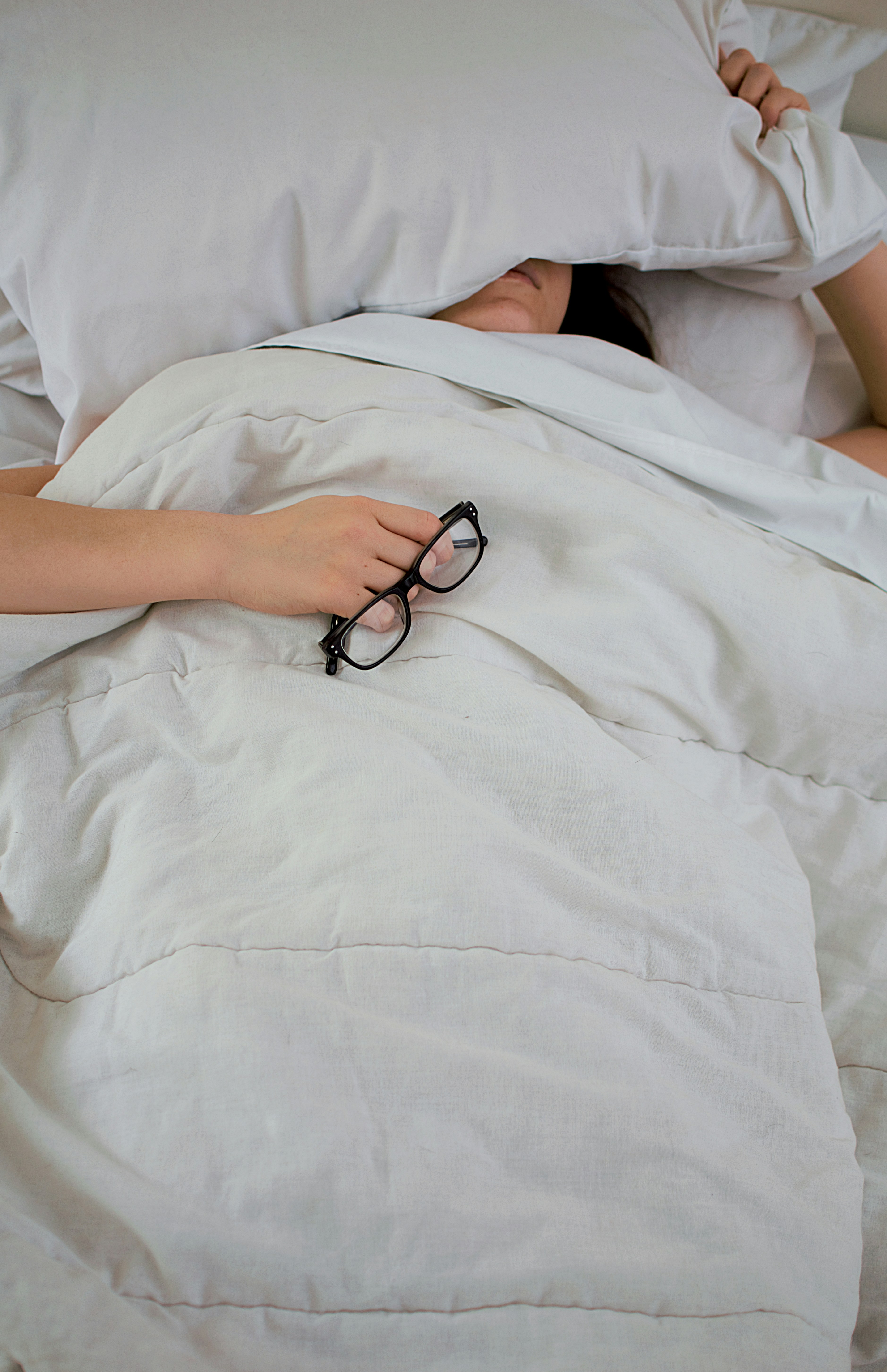Sleep and Weight: The Surprising Link Between Sleep Deprivation and Weight Gain

Introduction
We’ve all heard the common saying, “I’ll sleep when I’m dead.” While that may seem like a badge of honor for many of us in today’s fast-paced world, the truth is that sleep deprivation is not just exhausting—it’s also detrimental to our waistline. Research consistently shows that inadequate sleep is directly linked to weight gain and obesity , making sleep as important for weight management as exercise and diet.
In this article, we’ll explore the surprising ways that sleep deprivation can affect metabolism, appetite regulation, and fat storage, and how getting quality rest can help you achieve and maintain a healthy weight.
1. The Hormonal Connection: How Sleep Affects Hunger and Satiety
Sleep plays a crucial role in regulating the hormones that control hunger and satiety . Two key hormones, ghrelin and leptin , are involved in this process:
1.1 Ghrelin: The Hunger Hormone
- Ghrelin is a hormone that signals hunger to the brain. It increases before meals and decreases after eating.
- Sleep deprivation causes increased ghrelin levels , leading to heightened hunger and cravings for high-calorie foods.
- Studies have shown that after just one night of poor sleep, individuals experience a significant increase in appetite , especially for foods high in fat and sugar.
1.2 Leptin: The Satiety Hormone
- Leptin is responsible for signaling satiety to the brain, telling you that you are full and should stop eating.
- Sleep deprivation leads to decreased leptin levels , meaning you don’t feel as full after eating, which encourages overeating.
- When both hormones are out of balance, as they are in people who are sleep-deprived, it leads to increased food intake and a greater likelihood of weight gain.
2. Disrupted Metabolism: Sleep and Your Body’s Energy Balance
Sleep deprivation also impacts your metabolism in several ways:
2.1 Insulin Sensitivity
- Insulin resistance is a key factor in weight gain, particularly in the development of type 2 diabetes .
- Research has shown that even short-term sleep deprivation can significantly reduce insulin sensitivity , making it harder for your body to process glucose effectively.
- Reduced insulin sensitivity leads to higher blood sugar levels, which can contribute to fat storage and increase your risk of obesity.
2.2 Increased Fat Storage
- When you're sleep-deprived, your body’s ability to burn fat efficiently is impaired.
- Research from the University of Chicago found that people who got less than 5 hours of sleep per night stored more fat than those who got a full 8 hours.
- This is partly due to the body’s heightened release of cortisol , a stress hormone that, when chronically elevated, leads to increased abdominal fat storage .
3. Sleep and Appetite-Boosting Behaviors
Sleep deprivation doesn’t just affect your hormones—it also influences your behavior in ways that make it harder to resist unhealthy foods:
3.1 Cravings for High-Calorie Foods
- Lack of sleep leads to cravings for high-calorie, high-sugar foods, often referred to as “comfort foods.”
- A study published in The American Journal of Clinical Nutrition found that sleep-deprived individuals consumed more calories from foods rich in fat and sugar than those who had a full night’s rest.
- This is partly because sleep deprivation disrupts the prefrontal cortex , the part of your brain that controls decision-making and impulse control, making it harder to resist unhealthy foods.
3.2 Emotional Eating
- Sleep deprivation affects emotional regulation, making you more susceptible to stress eating or emotional eating .
- The inability to cope with stress or negative emotions due to lack of sleep often results in increased food intake , especially high-calorie comfort foods, as a way to soothe anxiety and mood disturbances.
4. The Impact of Sleep Deprivation on Physical Activity
Not getting enough sleep can also reduce your ability to exercise effectively:
4.1 Lower Energy Levels
- Sleep deprivation leads to fatigue , which in turn reduces the likelihood of engaging in physical activity.
- People who are sleep-deprived are less likely to exercise, and when they do, their performance may suffer. This results in fewer calories burned throughout the day.
4.2 Decreased Motivation
- Chronic sleep deprivation is linked to decreased motivation to stay active and engage in physical activity, which is essential for weight loss and overall health.
- If you’re constantly tired, you may find it harder to stick to a regular exercise routine, contributing to weight gain over time.
5. Sleep Quality vs. Sleep Quantity: Which Matters More for Weight Control?
While many people focus on the quantity of sleep, the quality of sleep is just as important when it comes to weight management:
5.1 Deep Sleep and Fat Loss
- Deep sleep (also known as slow-wave sleep ) is the most restorative stage of sleep. It is when your body undergoes repair and regeneration.
- Poor sleep quality—frequent awakenings or insufficient time in deep sleep—can interfere with fat burning, even if you’re sleeping for a full 7–8 hours.
- A study from the University of Michigan found that short, fragmented sleep led to higher levels of fat storage than a full night of uninterrupted sleep .
5.2 Sleep Cycles and Weight Management
- The sleep cycle is divided into light sleep , deep sleep , and REM sleep . Disruptions in the natural sleep cycle, such as frequently waking up throughout the night, can impede the body’s ability to regulate metabolism and manage weight.
6. Tips for Better Sleep and Weight Control
To optimize your sleep for weight management, here are some strategies to improve both sleep quality and quantity:
6.1 Stick to a Consistent Sleep Schedule
- Go to bed and wake up at the same time every day, even on weekends. This helps regulate your circadian rhythm and improve sleep quality.
6.2 Avoid Caffeine and Alcohol
- Caffeine and alcohol can both disrupt sleep quality. Avoid consuming them in the afternoon or evening to ensure a restful night’s sleep.
6.3 Create a Relaxing Bedtime Routine
- Wind down with calming activities such as reading, meditation, or gentle stretching to prepare your body for sleep.
6.4 Exercise Regularly
- Regular physical activity promotes better sleep, but avoid vigorous exercise close to bedtime, as it can make falling asleep more difficult.
6.5 Create an Optimal Sleep Environment
- Keep your bedroom cool, dark, and quiet to facilitate deep sleep. Consider using blackout curtains or a white noise machine if needed.
7. Conclusion
The connection between sleep deprivation and weight gain is clear. Sleep affects not only your appetite hormones , but also your metabolism, energy levels, and food choices. Inadequate sleep leads to increased hunger, cravings for unhealthy foods, and poor metabolic function—all of which contribute to weight gain.
By prioritizing good sleep hygiene and making sleep a consistent part of your health routine, you can support your weight loss goals and improve your overall well-being.
“Sleep is the best meditation.” – Dalai Lama




